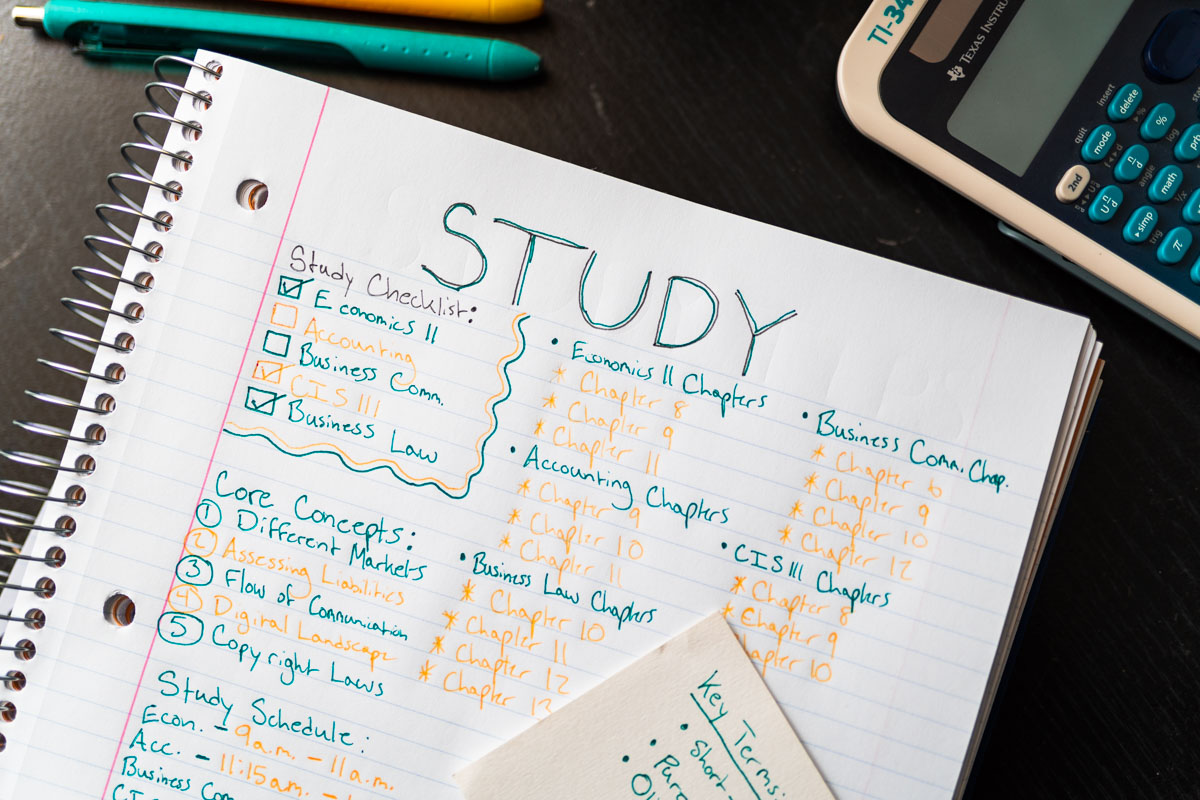
There are numerous methods one can use to approach studying for multiple classes.
Torrence Williams | Washtenaw Voice
by RACHEL RABIDEAU
Staff Writer
With finals approaching, many students are scrambling to prepare. Every person has a favorite study technique that works best for them, with methods varying from visual to hands-on.
The University of Michigan advises that for every hour spent in class, students should spend two hours studying. Expected higher levels of understanding combined with the fact that lectures often exclude homework and understanding checks, college students carry the responsibility of managing their education, according to U-M.
According to psychology.edu, one of the most effective learning techniques is retrieval practice. Having to recall information from memory, using flash cards or a practice test to quiz yourself.
“My favorite study technique is definitely flashcards!” says WCC student Sierra Holmes.
An article by edweek.org explores why simply attempting to explain a concept can secure a student’s own understanding of a topic. Instead of merely transferring information from textbook to exam sheet, explaining a concept can task students with a deeper understanding of why something is the way it is. Explaining your homework to a younger sibling or to your parents can test your knowledge of the topic.
WCC student Kelly Spurdock says that one of her favorite ways to study is “drawing things out from memory, talking myself through what’s happening.”
Arlo Flynn shares his go-to method: “I like using highlighters to emphasize important information and then rewriting that information to help me memorize it.”
MIT encourages students to study in short intervals of time, pairing each 50-minute block with a 10-minute break. Humans have short attention spans, and studying too long without taking breaks may cause people to mindlessly drone through information without retaining anything. While studying quantity is important, too much at one time can diminish quality.
Many college students are guilty of procrastinating and then cramming the night before their exam. According to Stanford University, cramming causes the brain to overwork itself, causing frustration, fatigue, and anxiety. It’s harder to recall information when put under pressure, causing students who cram to score lower on tests.
Cengage released a 5-day study plan to help students form good habits.
Hand-in-hand with cramming, pulling an all-nighter to get ready for an exam is many students’ last resort. This should be avoided if at all possible. According to the Sleep Foundation, missing even just one night’s sleep can cause the brain to act similarly to being intoxicated. Research shows that missing a 24 hour block of sleep causes mental performance to equivocate to someone with a blood alcohol content of 0.10%. The legal limit in Michigan is 0.08%. Skipping sleep inhibits mental pace keeping and problem-solving ability. The “cognitive deficit” isn’t worth it.
Hallmark University has several suggestions for how to reduce distractions while studying. After cleaning up your study space and tucking your phone away, sometimes noise- or lack of- in your study space can steal your attention from your notes. While too much noise can be distracting, so can too little. It can be helpful to listen to a peaceful study playlist to help you along. Vaughn College explores classical music as a student’s best friend in a study space. Engaging both sides of the brain, classical music can be very helpful for some. Songs without words and nature sounds are both good alternatives if classical music draws your attention away from your books.

